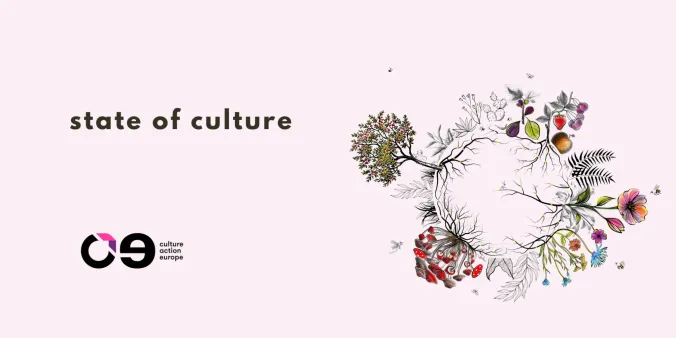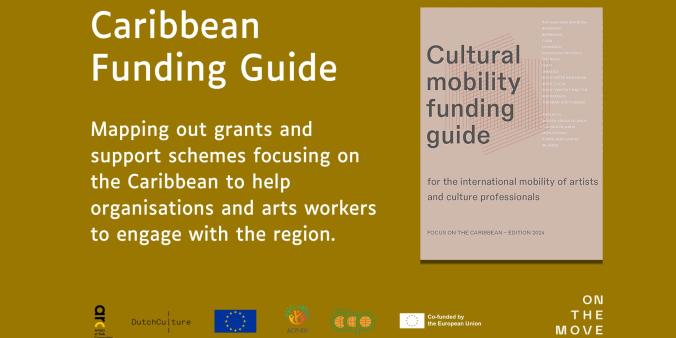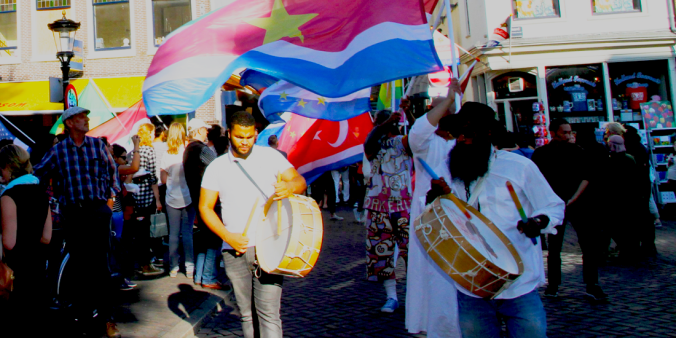
Understanding the Restitutionary Conjuncture
Klaas Stutje is a senior researcher at the Expert Center for Restitution of the NIOD Institute for War, Holocaust and Genocide Studies. As a historian he is involved in a number of projects around collections from colonial contexts, including projects of the Colonial Collections Consortium.
A conjuncture is a sociological concept of change, indicating a moment in which complex social, political and economic forces configure in such a way that the balance of power shifts profoundly, for the better or the worse. ‘[A] conjuncture [is] both a moment of danger and one of opportunity’.1
On Wednesday February 5th, around 120 people came together at the Peace Palace in The Hague for the symposium Restitution and Beyond: Decolonisation Debates in International Relations. The event was organised by a coalition of the Dutch platform for international cultural cooperation DutchCulture, the Wereldmuseum, the academic research programme Pressing Matter and the Colonial Collections Consortium, in partnership with the Cultural Heritage Agency and the Netherlands Commission for UNESCO. It attracted an international audience of national cultural institution representatives, policy makers, museum and heritage professionals, and academics, and was well organised at a beautiful location.
However, the symposium took place against the backdrop of a rapidly shifting political context that can be characterised as a conjuncture. February 5th, was the day on which Trump announced a plan to ethnically cleanse Gaza from the Palestinian population, hinting at a new nakba. Just days before, the fall of both the Congolese city of Goma and the Brandmauer against fascism in Berlin evoked traumas of colonialism, holocaust and genocide. Meanwhile, authoritarian regimes teamed up in determining the future of Ukraine. Traumatic pasts and dark futures loomed over the attendants in The Hague, as the world seems to float towards a historical cataract.
A previous conjuncture, the mid-1910s that saw the outbreak of the First World War, led to the construction of the Peace Palace and the creation of a Permanent Court of Arbitration. The conjuncture of 2025 may also lead to yet unforeseen opportunities. ‘As things are crumbling around us and being exposed for what they truly are, what some of us have always said they were, we must remember that we are not the things crumbling’, as the chair of the day and director of DutchCulture Kirsten van den Hul quoted the writer Clarice Gargard at the opening of the symposium. Yet, it is difficult to see new opportunities and the role that cultural cooperation and restitutionary work can take.
While the world outside was raging, the attendants spoke about the legacies and historical structures of colonialism in international cultural relations, with a special focus on the presence and future of cultural objects from formerly colonised territories in European museums. What role can cultural objects play in healing traumatic pasts and creating more equitable futures, if these objects were brought together in a context of colonialism and exploitation? And how to understand this historic conjuncture of new imperialism, racism and the rise of colonial apologism, that is at the same time an unprecedented moment of restitution?
Restitution as an opportunity
Some speakers chose to focus on opportunities, hopefully clinging onto a liberal notion of culture and art as the antonym of, even the antidote to violence and barbarism. In the face of new authoritarianism and nationalism the chair of the Netherlands Commission for UNESCO Kathleen Ferrier emphasised that cultural cooperation in general, and the restitution of objects to countries of origin in particular, can help forge new relations. ‘Culture is not just a trivial matter but the key to healing and progress’, Ferrier said. The conceptualisation of culture as the antidote to barbarism was poetically captured by the writer Munganyende who wished that someone would read a dictator a poem, but wondered how to do that when the books of poetry were taken from his people.
Several speakers shared positive experiences with postcolonial cultural exchange and the restitution of artefacts, from Denmark to Greenland, the Netherlands to Sri Lanka, and France to several countries in Africa. They echoed the famous call of Felwine Sarr and Bénédicte Savoy to work towards a ‘new relational ethics’ between countries and institutions from the Global North and South.2
There was a general consensus among the participants that the act of restitution should not be perceived as an end point, or the closure of a period of injustice. ‘Restitution is not the end but part of a journey’, said Lilian Gonçalves, chair of the Dutch Colonial Collections Committee. It is a ‘process’, as Tanuja Thurairajah (Executive Director of the Collective for Historical Dialogue & Memory (CHDM), Sri Lanka) called it. Yet, listening to the twenty presentations there was a nuanced divergence in the interpretation of the character of this process.
Restitutionary work
While some speakers seemed to argue for an acceleration of the restitution process and debate, as part of an agenda of decolonization and against the rise of colonial apologism, others warned for a too easy celebration of restitution by policy makers and museum curators. ‘We need to pause. To question. It feels too happy, too much a story of success’, said Wayne Modest (Director of Content of Wereldmuseum and leader of the Pressing Matter project). The progress made in the last years was not due to policy makers, but to the efforts of anti- and postcolonial activists and political pressure from the Global South in the preceding decades. Rather than embracing restitution as a means to leave uncomfortable histories behind and quickly work towards a new relational ethics, governments and institutions in the Global North and South should remain uncomfortable and introspective. We should try to fully capture the contradictions within this historic conjuncture, see where it is coming from and take restitution as ‘restitutionary work’, a concept coined by Ciraj Rassool.3
In a similar vein, Lennon Mhishi (Project Researcher at Pitt River Museum, UK) and Ibou Diop (Member of the Competence Centre for Decolonization at Haus der Kulturen der Welt, Germany) emphasised that through the restitution of objects other enduring structures of coloniality, such as containment policies, restrictions on mobility (visas), and knowledge inequalities become apparent. Restitutionary work is as much about dismantling the colonial present of inequality and cultural subjugation as it is about healing injustice in the past. Only then, restitution becomes an opportunity to understand, reshape and relive the world we live in.
Colonial collecting and restitution as a European project
Several contributors put the question to what extent a European integration of policies was desirable on the table. Susan Legêne (Professor of Political History at Vrije Universiteit Amsterdam and leader of the Pressing Matter project) noted that colonialism was not a national project but a shared and integrated European experience. She observed that this awareness was remarkably absent, both in the post-war process towards European integration and in earlier campaigns for restitution, for instance in the 1978 speech of UNESCO Secretary General Amadou-Mahtar M’Bow.4
To remedy ongoing national fragmentation and safeguard the agenda of decolonization against right wing revanchism, some speakers pled for a European convergence of restitution policies. This could either take the form of a central European restitution policy, of guiding principles similar to the 1998 Washington Principles on nazi-looted art, or of an expansion of research networks and practices. Other speakers were critical of this idea of European convergence and warned against the risk of the leveling down of policies, and of losing flexibility of collaboration between individual countries. Not all collections and not all countries of origin require a similar treatment.
Moreover, as Bambi Ceuppens (Senior Researcher and Curator at Royal Museum for Central Africa, Belgium) described with the case of Belgium and Congo, the installation of official policies on the national or international level hampers previously existing relations and acts of restitutions between individual museums in Europe and local communities. New national policies implied that everything needs to be channeled through state-to-state procedures. It led Larissa Förster (Director at the Weltkulturen Museum, Frankfurt am Main, Germany) to remark that we need to continue to also have unregulated conversations on a human and professional level, in a protected space that is independent from official state policies and the whims of politics.
As an affirmation of this last comment and with an eye on the grim world outside, Susan Legêne closed the day with her take-away-message that the phrase ‘beyond restitution’ should be understood that it is not only about the act of restitution itself, but also about taking care of what we have, and taking care of each other in the historic conjuncture that we live in.
About the Symposium
On February 5th, 2025, DutchCulture, Pressing Matter and Wereldmuseum co-organized the symposium Restitution and Beyond: Decolonisation Debates in International Relations at the Peace Palace in The Hague, with the support of the Netherlands Commission for UNESCO and the Cultural Heritage Agency of the Netherlands.
The symposium brought together policy makers, academics, and museum professionals to explore decolonisation debates in international relations and examine how cultural heritage is entangled with imperial legacies in the Netherlands and Western Europe. The program featured various panel discussions, keynote lectures, and breakout sessions, on topics including digitalisation, participatory practises and policy development. Klaas Stutje, researcher at the Expertisecentrum Restitutie (ECR) of the NIOD (Dutch Institute for War, Holocaust and Genocide Studies), wrote the following report. DutchCulture is thankful to all partners, speakers and participants for sharing their valuable insights, experience and ideas.
1 Tony Bennett, ‘The Stuart Hall Conjuncture’, Cultural Studies Review 22-1 (March 2016) quoted by Wayne Modest at the Symposium.
2 Felwine Sarr and Bénédicte Savoy, The Restitution of African Cultural Heritage. Towards a New Relational Ethics (Paris 2018) 40.
3 For instance in: Ciraj Rassool and Victoria Gibbon, “Restitution versus Repatriation: Terminology and Concepts Matter,” American Journal of Biological Anthropology 184:1 (2023).
4 Amadou-Mahtar M’Bow, ‘A plea for the return of an irreplaceable cultural heritage to those who created it’, July 1978.




